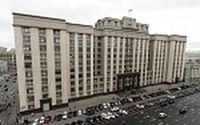In a bold move aimed at improving the livelihoods of workers across Russia, deputies from the Liberal Democratic Party of Russia (LDPR) have introduced a bill proposing a significant increase in the minimum wage. If passed, the new minimum wage (МРОТ) would rise to 34,000 rubles per month starting January 1, 2026. This proposal comes as part of a broader initiative to address the undervaluation of labor in the country, which has been a growing concern among lawmakers and the public alike.
The proposed legislation also seeks to establish a minimum hourly wage for part-time workers at 300 rubles per hour, marking a substantial increase from the current rate of approximately 120 rubles. This change is particularly relevant as more employers are turning to temporary contracts, which often lead to lower wages and less job security for workers. As noted by Yaroslav Nilov, the head of the State Duma Committee on Labor, Social Policy, and Veterans Affairs, "Labor in Russia must be valued appropriately, so we believe the minimum wage should be significantly higher."
The initiative aligns with President Vladimir Putin's earlier directive to raise the minimum wage to 35,000 rubles by 2030, but the LDPR is advocating for a faster implementation. The party argues that the current minimum wage and the corresponding hourly rate do not reflect the real cost of living and fail to support workers adequately.
According to the bill's authors, the current minimum wage of 22,440 rubles is insufficient, especially given the rising costs of living and inflation. They emphasize that the new minimum wage and hourly rates are necessary to ensure a decent standard of living for all workers in Russia. The proposal also includes provisions for annual indexation of the minimum hourly wage, ensuring that wages keep pace with inflation and economic changes.
Nilov elaborated on the rationale behind the proposed changes, stating, "The current hourly rate derived from the minimum wage is extremely low and does not provide a livable wage for those working part-time. The introduction of a minimum hourly rate of 300 rubles will help ensure that part-time workers are compensated fairly for their labor." He further highlighted the need for legislative measures to protect workers engaged in temporary employment, which has become increasingly common in recent years.
As the legislative process unfolds, the LDPR is optimistic about the bill's prospects, citing a growing recognition among lawmakers of the importance of fair labor practices. The party believes that enhancing the minimum wage and establishing a minimum hourly rate will not only improve workers' quality of life but also stimulate economic growth by increasing consumer spending.
However, some economic analysts have raised concerns about the potential impact of such wage increases on businesses, particularly small enterprises that may struggle to meet higher payroll costs. Critics argue that while the intention behind the proposed wage hikes is commendable, they could lead to increased unemployment or reduced hiring as businesses adjust to the new financial landscape.
In response to these concerns, Nilov acknowledged the challenges but emphasized the necessity of prioritizing workers' rights and well-being. "It's crucial that we find a balance that supports both workers and businesses," he stated. The LDPR is committed to ensuring that the new wage structure does not come at the expense of job creation and economic stability.
The proposed changes have sparked a broader conversation about labor rights in Russia, with many advocating for a reevaluation of how workers are compensated in an ever-changing economic environment. Supporters of the bill argue that fair wages are not just a matter of economic policy but also a fundamental human right that deserves protection.
As discussions continue, the fate of the proposed legislation remains uncertain, but the dialogue it has generated highlights the pressing need for reforms in the labor sector. Lawmakers are expected to engage in further debates, weighing the benefits of higher wages against potential economic repercussions.
In conclusion, the LDPR's proposal to raise the minimum wage and establish a minimum hourly rate for part-time workers represents a significant step towards addressing wage disparities in Russia. As the country navigates economic challenges, the outcome of this legislative initiative could have lasting implications for the future of work and labor rights in the nation.



